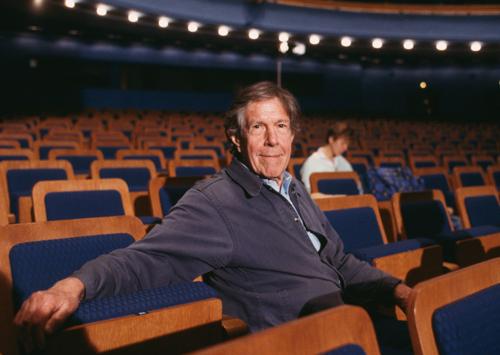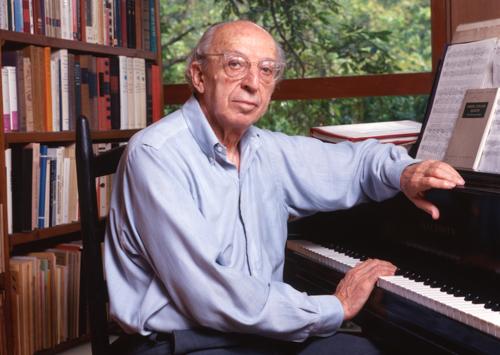Listen to New Voices on Studs Terkel our partnership with 826CHI-here! Read the Story
Showing 1 - 14 of 14 results
-
Robertson Davies discusses his book, "Lyre of Orpheus"
Jan. 26, 1989 Robertson Davies, Canadian writer and professor, discusses his newest book, "Lyre of Orpheus," the third book in the "Cornish Trilogy." The summary of the book and its ties to the King Arthur legend are explained.
-
Ned Rorem discusses his writing and compositions
1966 Ned Rorem discusses the differences between writing books and writing compositions, his book "The Paris Diary of Ned Rorem", and how he uses poetry in his compositions.
-
Ned Rorem discusses his career
Mar. 22, 1984 Studs Terkel interviews composer Ned Rorem. They discuss Rorem's childhood, music, poetry, languages, and religion.
-
Maurice Sendak discusses his book "Where the Wild Things Are"
Dec. 19, 1990 Monsters, imagination and violence in children's literature are all topics of Maurice Sendak's book, "Where the Wild Things Are." When writing the book, Sendak used his own experiences as a little boy, remembering that the monsters in the family were relatives on his mother's side. There are two excerpts of composer Oliver Knussen.
-
Madeleine L'Engle discusses her novel "A Severed Wasp"
Jan. 30, 1983 Author Madeleine L'Engle discusses her novel "A Severed Wasp," about a retired concert pianist (Katherine Forrester, who appeared in L'Engle's first novel, "The Small Rain") who puts on a benefit concert at the Cathedral of St. John the Divine at the request of her old friend, Felix Bodeway. Like Katherine, L'Engle is a pianist and the interview is interspersed with Bach fugues throughout. In addition to discussing the plot, Terkel and L'Engle discuss several of the book's characters and their histories and motivations.
-
John Cage discusses his music, life, influences, and career
Aug. 13, 1992 John Cage discusses his music, life, influences, and career. Rebroadcast of an interview with John Cage to celebrate his life and what would have been soon his 80th birthday. Includes a clip of John Cage reading/ telling a story in 1969 to Studs Terkel.
-
Fela Sowande discusses his career and Nigerian music ; part 2
Jul. 3, 1962 Fela Sowande discusses his career, different types of Nigerian and African music, the Yoruba people, and religion. Includes clips of an African Yoruba pagan hymn "Oyigiyigi," a Christian version of that hymn, and an organ version of that hymn. Includes Sowande's song "Roll de Ol' Chariot." Quotes a poem by [Anthony Gregascoigne], an English poet he met in England.
-
Bruno Bettelheim discusses his book, "Love is not enough: the treatment of emotionally disturbed children" ; part 2
May. 25, 1961 Bruno Bettelheim discusses his book "Love is not enough: the treatment of emotionally disturbed children". He discusses his theories on treating "emotionally disturbed" children and he speaks about The Orthogenic School for Emotionally Disturbed Children where he is the director.
-
Abram Loft discusses his career and his book "Violin and Keyboard"
Jul. 25, 1974 Abram Loft discusses his career, his book "Violin and Keyboard", art, and music education. Includes Abram Loft reading a passage from his book "Violin and Keyboard". Includes Abram Loft reading excerpts from newspapers.
-
Aaron Copland discusses his career
Mar. 10, 1961 Aaron Copland discusses his music, his colleagues, contemporaries, musicians, and composers.




